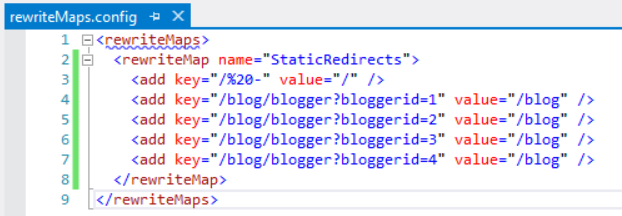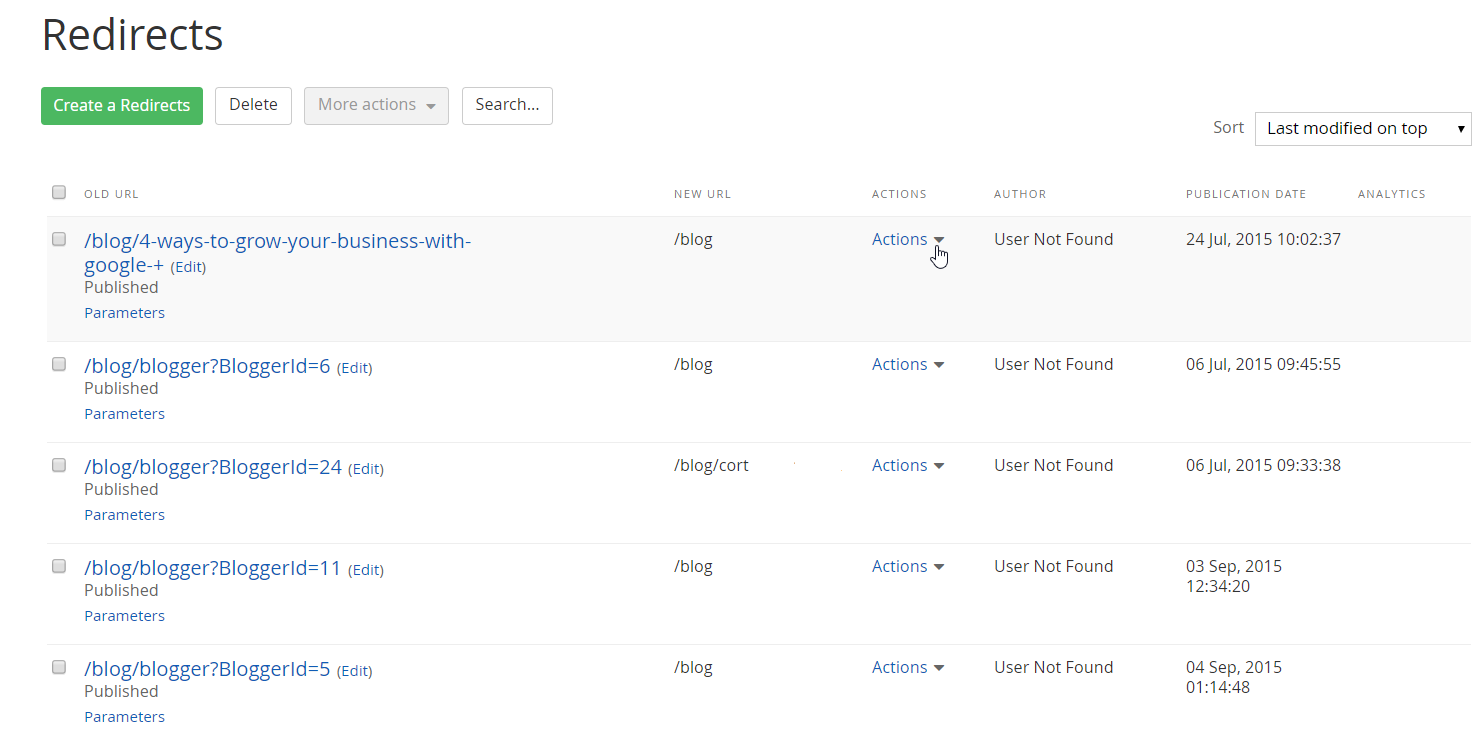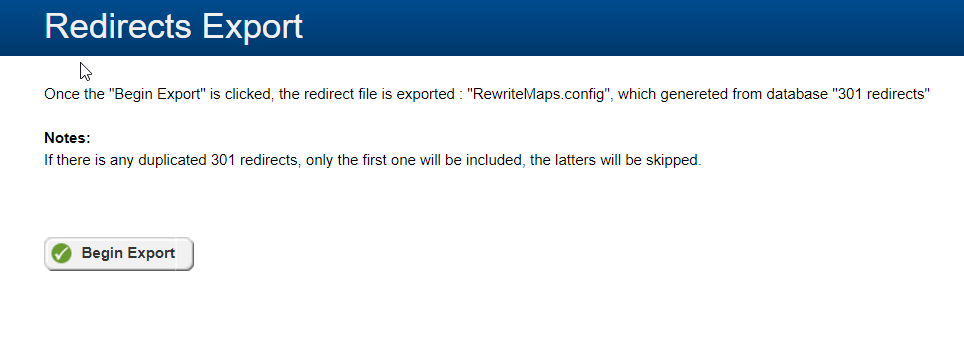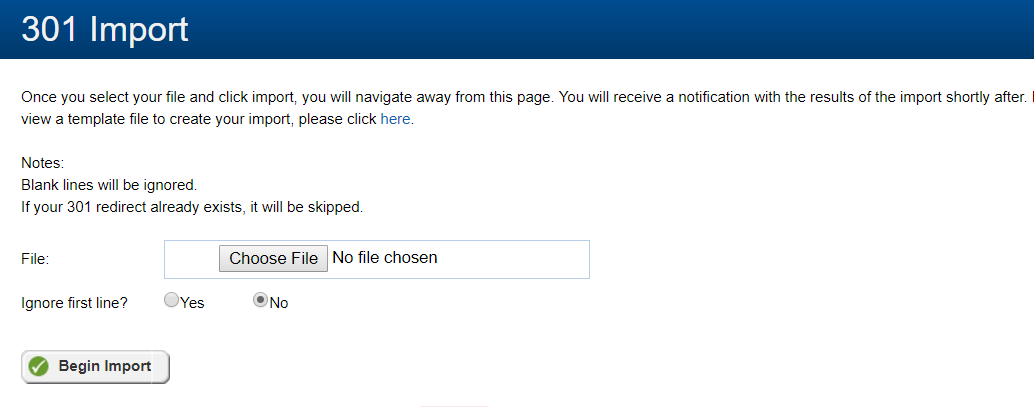When a web site is rebuilt in Sitefinity from another CMS, it provides an opportunity to restructure the pages and group them better for easy navigation and for SEO. It leads to change in the url itself. We can notice a surge in 404s in Google Analytics dashboard, shortly after a website is launched. It is because the users might have bookmarked certain pages or shared some interesting articles in social media, which are visited often. In addition search engines might not have indexed the contents of the new website. We can export the list of 404s from Google Analytics dashboard. We can decide the pages it should be redirected to. It can be intensive process depending on the number of pages in the website.
For each page in CMS, Sitefinity gives an option to enter Additional URLs. It is helpful if there are only a few redirects. But if we have several hundreds or thousands, it becomes quickly difficult to manage.
As Sitefinity is a .NET application, we can utilize IIS URL Rewrite module. We need to make sure it is enabled before using the redirects. First we start with a simple Redirects rules as shown below.

Then it is just a matter of adding the mapping the redirects as a key-value pair in rewriteMaps.config

Then, we map the redirects in web.config as follows:

For more detailed discussion of how to use the URL Rewrite Module, please refer to an excellent article available in Microsoft documentation site:
https://docs.microsoft.com/en-us/iis/extensions/url-rewrite-module/using-rewrite-maps-in-url-rewrite-module
301s are usually managed by SEO specialist or the Web master. Having a CMS screen to manage 301s will make their life lot easier than working with a configuration file like the above, which is usually programmer’s domain.
So the idea is to utilize Sitefinity’s module builder to create 301 Redirects module, with simple fields like old url and new url. SEO specialist can use the data entry screen for entering the redirects manually.

We built a custom backend screen which will export all the redirects entered in the CMS to the RewriteMaps.config. Then IIS automatically takes care of those redirects.

When there a lot of redirects which needs to uploaded to CMS, instead of manually entering them, we built an tool to import redirects as comma separated file (csv) file with two fields – old url and new url

We can help you in implementing this 301 import and export tool in Sitefinity, which helps to easily manage redirects using the visual interface. Contact us for more details.
